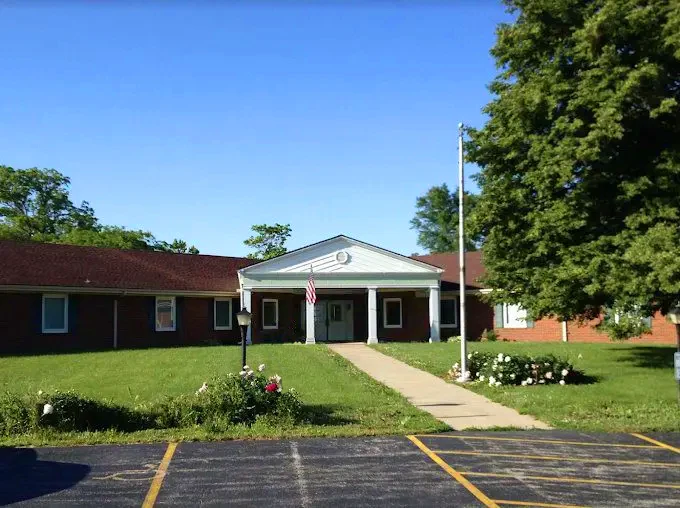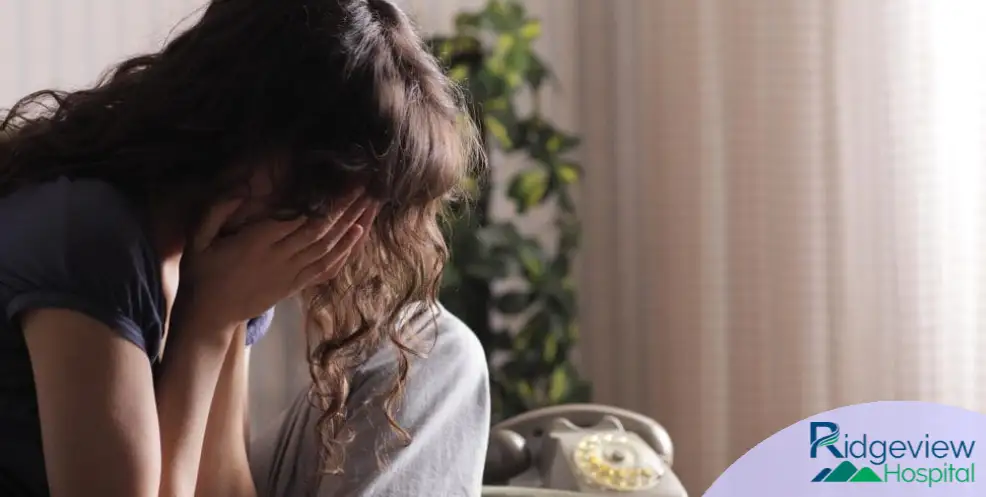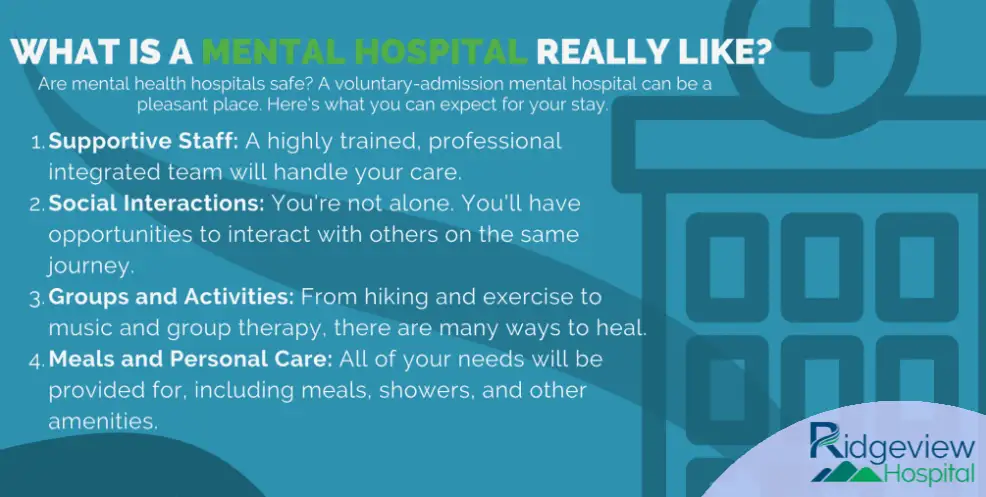In a society where the well-being of seniors is often overlooked, understanding and addressing the unique behavioral health needs of this age group is paramount.
This comprehensive guide delves into the current landscape of geriatric behavioral health, underscores the need for specialized services, and presents Ridgeview Behavioral Hospital’s unique approach through our Silver Lining Program.
Designed to empower seniors, caregivers, and families with actionable insights, our guide culminates in practical tips for early detection and intervention.
After all, the goal is not just to add years to life, but life to years—ensuring that older adults live their later years with dignity, peace, and happiness.
The Current State of Geriatric Behavioral Health

The need for specialized behavioral health services for older adults is growing rapidly. In the span of 12 years, from 2000 to 2012, senior admissions for behavioral health care nearly doubled, going from 3.4% to 7.0%.
Substance Use Disorders (SUDs) also pose a significant concern for this age group. As of 2018, almost a million seniors were living with an SUD. Alcohol tops the list of misused substances, with roughly 65% of those aged 65 or older engaging in high-risk drinking on a weekly basis. Furthermore, binge drinking is currently an issue for over 10% of seniors.
The misuse of prescription medications amplifies the problem. A 2019 study indicated that over a quarter of those aged 50 and above who misuse medications like opioids or benzodiazepines have suicidal thoughts. This is in stark contrast to the 2% with similar thoughts who don’t misuse such medications.
The Importance of Specialized Geriatric Behavioral Health Services
As our aging population continues to grow, so does the necessity for targeted behavioral health services for seniors.
Geriatric patients face unique challenges, often dealing with a combination of mental disorders and substance misuse issues. The overlap of these problems can have a cascading effect on overall health, exacerbating existing medical conditions and complicating treatments.
Traditional behavioral health services may not be sufficient to address these complexities. Therefore, specialized programs are indispensable for the effective treatment of seniors with mental and substance-related disorders.
Tailored treatments provide a multidimensional approach that can identify and treat underlying issues more effectively than generalized programs. This focused care often leads to better long-term outcomes, enhancing the quality of life for seniors.
Notably, specialized behavioral health services offer a more nuanced approach to medication management, a critical consideration given the risks of prescription misuse in this demographic.
The treatment plan can be adjusted to mitigate the risks of adverse medication interactions, thereby promoting safer and more effective care.
Moreover, specialized programs often include integrated teams of professionals trained in geriatrics, psychiatric care, and substance use treatment. These interdisciplinary teams work in tandem to develop comprehensive treatment plans that can adapt to the evolving needs of each senior patient.
In essence, specialized behavioral health services offer a lifeline for older adults navigating the complicated intersection of mental disorders and substance abuse.
Through tailored treatments and multidisciplinary teams, these programs provide the necessary support for seniors to live healthier, more fulfilled lives.
Challenges in Treating Geriatric Behavioral Health

The increasing acknowledgment of the necessity for specialized behavioral health services tailored for older adults is encouraging. However, several obstacles persist in delivering effective care to this demographic, complicating their route to enhanced mental and emotional well-being.
Medication Management Complexities
One of the first big issues is figuring out the right medicines for older adults. Many seniors are already taking lots of different pills for things like high blood pressure, diabetes, or arthritis. When you add in medicines for mental health or substance abuse, it gets tricky.
There’s a risk that these medicines can interact badly with each other, causing harmful side effects. And some medicines can make mental health or substance abuse problems even worse. So, doctors and pharmacists need special training to know how to handle these complex situations.
Accessibility and Financial Barriers
Another problem is actually getting to the places that offer special care for older adults. For seniors living in small towns or rural areas, the nearest facility might be far away. Even in cities, it can be tough if they don’t drive or have easy access to public transportation.
On top of that, specialized care can be expensive. Many seniors are on a fixed income and just can’t afford the high costs, making it even harder for them to get the treatment they need.
Stigma and Societal Attitudes
Lastly, many older adults feel embarrassed or ashamed about needing mental health or substance abuse treatment. They might have grown up at a time when people didn’t talk openly about these issues. This can make them less willing to admit they need help, which means they put off getting treatment. This delay can make their mental health or substance abuse issues even worse, and can also have a bad effect on other health problems they may have.
Each of these hurdles needs to be tackled in its own way. The first step is knowing what the problems are so that we can figure out the best solutions for older adults’ mental health care.
Ridgeview’s Unique Approach: The Silver Lining Program
Welcome to the Silver Lining Program, Ridgeview Behavioral Hospital’s specialized initiative designed for seniors and older adults.
Our comprehensive offerings include personalized behavioral therapies and medication management, all aimed at enhancing both mental and physical well-being. We offer a holistic approach that addresses the unique challenges seniors face, helping them navigate the emotional complexities that come with aging.
Goal-Oriented Reintegration
The ultimate aim of the Silver Lining Program is to enable seniors to return to their homes and communities in a healthier, happier state.
We focus on boosting self-confidence and overall mental health through tailored interventions. Whether individuals are dealing with mobility issues or varying levels of independence, our specialized care ensures they can find a fulfilling role upon returning home.
Expert Interdisciplinary Teams
Our program benefits from an interdisciplinary team that specializes in geriatric behavioral health. Each client undergoes a thorough assessment to identify their specific needs, which can range from mental health conditions to the challenges of maintaining independence in their later years. This allows us to create individualized treatment plans that address both mental and physical aspects of health.
Onsite Physical and Occupational Therapy
Understanding that physical limitations can often contribute to emotional struggles, the Silver Lining Program also offers on-site physical and occupational therapies specifically designed for seniors.
These services focus on improving mobility and alleviating discomfort, allowing older adults to engage more actively in their daily lives. Additionally, our Recreational Therapy provides stimulating activities that enrich both mind and body.
Specialized Gerontological Expertise
With a dedicated staff member specializing in gerontology, our program is uniquely equipped to handle the common challenges faced by seniors. This expertise enables us to provide more targeted and effective solutions, enhancing the overall quality of life for older adults.
Comprehensive Medication Management
Managing medication is a complex but crucial part of senior care, especially for those dealing with behavioral health issues. We take a detailed approach to prescribing and managing medications, ensuring that each individual finds the right therapeutic balance. This minimizes the risk of medication abuse and adverse interactions, thus supporting overall health and well-being.
Tips for Older Adults and Caregivers
Recognizing the signs of behavioral health issues in seniors and knowing the right steps to take can be daunting. Here, we offer a guide on how to identify issues related to mental health and substance abuse, and what actions you should consider, including reaching out to Ridgeview Behavioral Hospital’s Silver Lining Program.
Identifying Signs of Concern
- Mood Changes: Sudden or drastic shifts in mood can be a red flag.
- Isolation: If the senior starts avoiding social activities or becomes withdrawn, it’s a sign.
- Substance Use: Noticeable increase in alcohol consumption or prescription medication misuse should be taken seriously.
- Decline in Self-Care: Neglected personal hygiene could be a symptom of a deeper issue.
- Cognitive Issues: Forgetfulness or confusion that disrupts daily activities is another signal.
Taking the First Steps
- Open Dialogue: Initiate a non-judgmental conversation with the senior about your observations and concerns.
- Consult a Medical Professional: Schedule a visit with their primary care physician for an initial evaluation.
- Document Symptoms: Keep a record of symptoms and behaviors to provide a comprehensive picture to healthcare providers.
Reaching Out to Ridgeview
If these signs persist or worsen, consider specialized treatment. Ridgeview Behavioral Hospital’s Silver Lining Program is specifically tailored for seniors and offers comprehensive services that range from personalized therapies to medication management.
- Contact Us: You can reach Ridgeview Behavioral Hospital via phone or through our website for a consultation.
- Immediate Assessment: We offer immediate assessments to understand the needs of the older adult, ensuring an individualized treatment plan.
- Insurance and Payment: Financial options and insurance coverages are discussed upfront, providing clarity on treatment costs.
The key takeaway here is that if you notice these troubling signs in a senior you care for, it may be time to seek specialized help. Ridgeview’s Silver Lining Program offers a structured, empathetic approach to tackling the behavioral health issues that commonly afflict older adults.
Remember, early intervention is crucial. The sooner issues are addressed, the better the chances for a successful recovery and a fulfilling life for the older adults in your care.





















